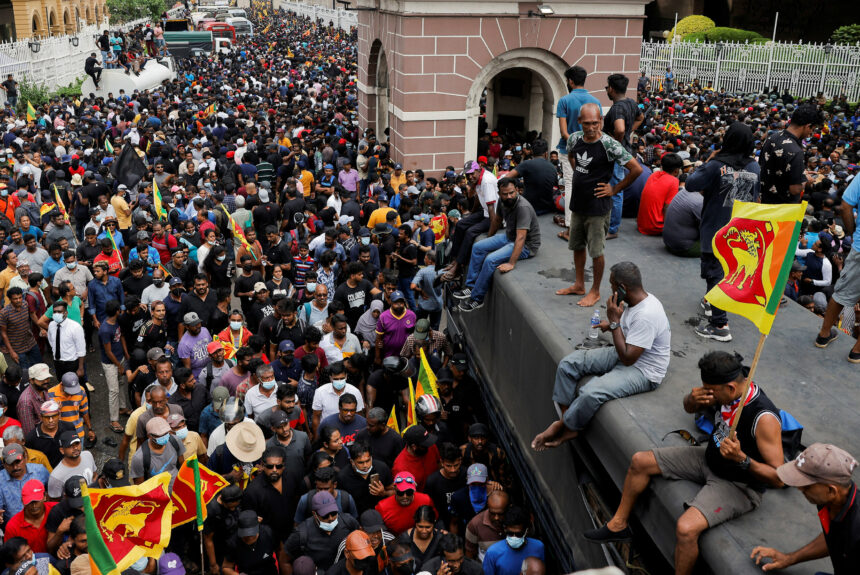Winter is coming. In Germany, this rather unspectacular, annual prediction is taking on a whole new, gloomy meaning. With already sky-high energy prices, Russian President Vladimir Putin is threatening these days to not even deliver gas through the Nord Stream 1 pipeline anymore. And thus, fears have arisen that Europe’s wealthiest country will not have enough energy through the winter. Rationing may be the natural consequence, and the plans by the government sound rather frightening for a supposedly free country: shutdowns of important industries, no driving on Sundays, no hot showers, limits on heating, and, for the summer months, no AC. Difficult months may await German citizens and businesses.
>>>READ: How Germany’s Top-Down Energy Policy Led to Environmental and Geopolitical Disaster
But it is not only Germany that is currently faced with environmental and energy backlashes. One glance at the gas prices in the U.S. will be evidence enough that we find ourselves in a global energy crisis. In Sri Lanka, a project of transforming farming to become fully organic has turned into a catastrophe, with fears that there will only be enough food for one meal per day per person moving forward. In the Netherlands, farmers and fishers are protesting against government-imposed climate mandates which will drive them out of business and impact livelihoods.
While Germany, Sri Lanka, and the Netherlands seem to face wholly different situations, they all have one thing in common: top-down environmental and energy policies have gone awfully wrong and are now hurting businesses, private entrepreneurs, and ordinary citizens.
C3 has covered Germany’s environmental policy disaster in a previous article, but suffice to say that centralized environmental policy has caused havoc for the country. By irrationally having phased out nuclear energy, the German government implemented an exorbitantly costly energy transition towards renewables which has been paid for by SMEs and citizens, not Big Businesses. It has only partially replaced other energy sources. The remaining shortfall was made up by Russian gas despite warnings that doing business with tyrants might not be the best idea in the world.
In the case of Sri Lanka, the government promised to turn the country fully organic within a decade and prohibited all fertilizers and pesticides. But this social engineering project has led to a dramatic tumble in rice production of about 20 percent within the first six months. Half a million people have sunk below the poverty line again.
Finally, in the Netherlands, its government promised to halve nitrate pollution within the next ten years, which would have massive consequences on livestock. New regulations for fishing permits were also introduced, which would likely lead to fishers being left out of their standard business model.
>>>READ: Dutch Farmer Protests, High Gas Prices Indicate Need for Pro-Consumer Climate Policy
All three examples are programs with good intentions – helping the environment through, respectively, renewables, organic farming, and lower pollution and fishing rates – but having been implemented miserably in a top-down and radical fashion on the back of ordinary citizens.
All three of these examples, despite their differences, share in common many problems of today’s environmental activism: first, they show that top-down environmentalism a la Green New Deals simply does not work. When governments employ a system of dirigisme, things will naturally go wrong, regardless of which area the state employs its central power. No authority is able to know all the on-the-ground details needed to make positive change. When the government nevertheless uses its force to succeed over all obstacles, (many) unintended consequences will arise. It is no different when it comes to the environment.
Second, these top-down environmental policies show a worrisome lack of compassion for those who are hurt by them. Instead, they, strangely enough, consistently seem to perpetuate corporate and political cronyism where state officials and big corporations design the rules in their favor.
In Germany, corporations got exemptions to pay higher energy levies to pay for the energy transition. Additionally, all citizens are ordered to limit their AC use, but German government buildings in Berlin continue to blast cold air out for officials who are out of office or on vacation. In the Netherlands, the work of local farmers is targeted to reduce nitrate pollution, while the European Union continues to send hundreds of millions of euros every year to farming corporations that emit nitrate en masse. For some reason, when environmental policies are implemented, ordinary people always seem to lose out while those already at the top of the economic ladder are set to flourish even more.
Finally, these policies tend to be completely devoid of reality. They are radical in nature: things have to be done now, and all other factors have to make way for the protection of the environment. It is essential to protect nature and fight global warming. But it seemingly has never crossed an activist’s mind that in times of inflation and economic recession, it might not be the wisest decision to make things even worse economically.
Of course, the trade-off of a strong economy or clean environment would not have to exist if governments would not be so involved in both areas. Indeed, nature and economy go hand-in-hand, and the freer an economy is, the cleaner and greener it tends to be. By getting political authorities who are in bed with business conglomerates out of environmental and economic discussions and by empowering individuals and communities on the ground, both the planet and the economy would profit.
As we can see in the example of these three nations’ misery, we are sadly still far away from recognizing this important message.
Kai Weiss is a Research and Outreach Coordinator at the Austrian Economic Center, and author of Green Market Revolution: How Market Environmentalism Can Protect Nature and Save the Planet.
The views and opinions expressed are those of the author’s and do not necessarily reflect the official policy or position of C3.
